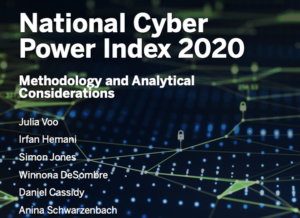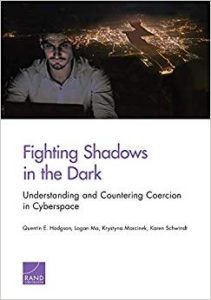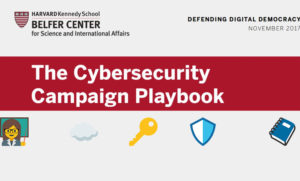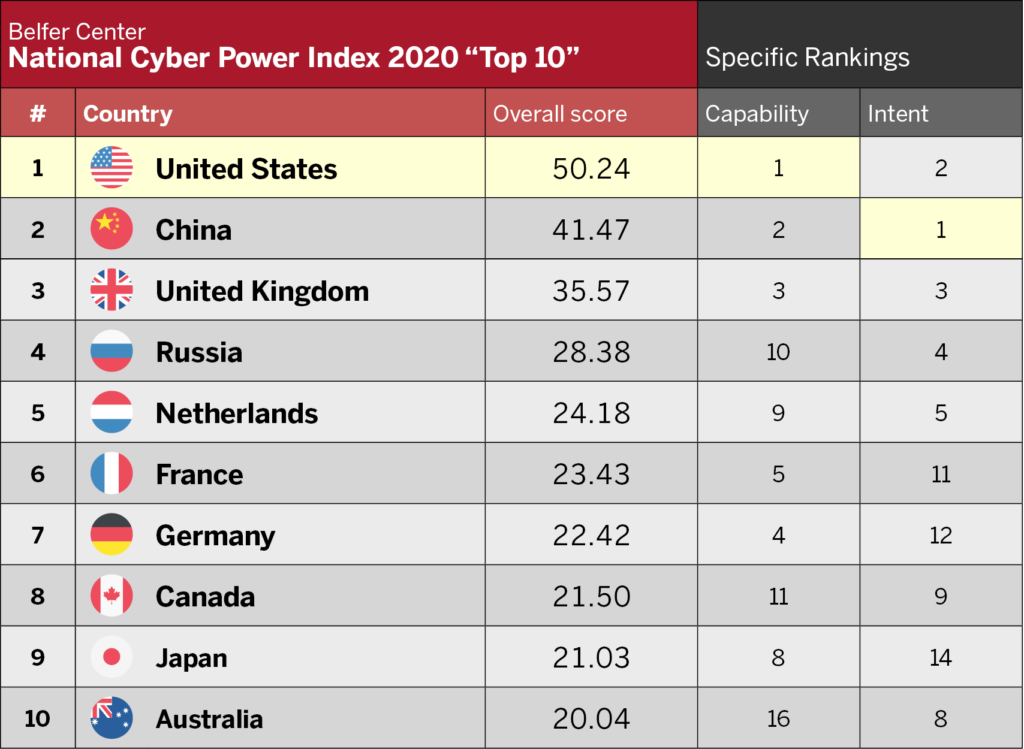Has the democratic promise of technology been irretrievably lost? The short answer: not yet. But the new era is marked by struggles on multiple fronts. https://t.co/aXOrILbJwU via @CarnegieEndow
— Democracy Digest (@demdigest) September 9, 2020
The autocratic regimes of China and Russia occupy two of the top five positions in a global cyber power index otherwise dominated by the world’s leading democracies, according to a new report.
A new study from Harvard University’s Belfer Center shows that China has closed the gap on the U.S. in three key categories: surveillance, cyber defense, and its efforts to build up its commercial cyber sector, CyberScoop reports.
 “A lot of people, Americans in particular, will think that the U.S., the U.K., France, Israel are more advanced than China when it comes to cyber power,” Eric Rosenbach, the Co-Director of Harvard’s Belfer Center, told CyberScoop. “Our study shows it’s just not the case and that China is very sophisticated and almost at a peer level with the U.S.”
“A lot of people, Americans in particular, will think that the U.S., the U.K., France, Israel are more advanced than China when it comes to cyber power,” Eric Rosenbach, the Co-Director of Harvard’s Belfer Center, told CyberScoop. “Our study shows it’s just not the case and that China is very sophisticated and almost at a peer level with the U.S.”
Cyber is a field of contestation between autocratic and liberal democratic norms and institutions, analysts suggest.
“Renewed great-power competition with ideological adversaries need not alter America’s vision for cyberspace (i.e., an open, interoperable, secure, reliable, market-driven domain that reflects democratic values and protects privacy),” notes analyst Emily O. Goldman. “However, it does require an empirically based view of the cyberspace strategic environment as one characterized by great-power competition and contested principles and norms that has evolved away from the vision of international liberal markets buttressed by an open, worldwide internet,” she writes for the Texas National Security Review.
 “For the last 10 years, the United States has witnessed the emergence of de facto norms antithetical to U.S. interests, defined by massive theft of intellectual property, expanding control of internet content, attacks on data confidentiality and availability, violations of privacy, and interference in democratic debates and processes. These activities have become normalized because the United States did not push back on them persistently and early on,” Goldman adds in From Reaction to Action: Adopting a Competitive Posture in Cyber Diplomacy.
“For the last 10 years, the United States has witnessed the emergence of de facto norms antithetical to U.S. interests, defined by massive theft of intellectual property, expanding control of internet content, attacks on data confidentiality and availability, violations of privacy, and interference in democratic debates and processes. These activities have become normalized because the United States did not push back on them persistently and early on,” Goldman adds in From Reaction to Action: Adopting a Competitive Posture in Cyber Diplomacy.
There is no single measure of cyber power, which is made up of multiple components and should be considered in the context of a country’s national objectives, according to the Belfer National Cyber Power Index (NCPI – below), which measures 30 countries’ cyber capabilities in the context of seven national objectives.
Taking an “all-of-country” approach, the NCPI measures government strategies, capabilities for defense and offense, resource allocation, the private sector, workforce, and innovation. Its assessment is both a measurement of proven power and potential, where the final score assumes that the government of that country can wield these capabilities effectively, say analysts Julia Voo, Irfan Hemani, Simon Jones, Winnona DeSombre, Dan Cassidy, and Anina Schwarzenbach.
![]() The NCPI identified seven national objectives that states pursue using cyber means:
The NCPI identified seven national objectives that states pursue using cyber means:
- Surveilling and Monitoring Domestic Groups;
- Strengthening and Enhancing National Cyber Defenses;
- Controlling and Manipulating the Information Environment;
- Foreign Intelligence Collection for National Security;
- Commercial Gain or Enhancing Domestic Industry Growth;
- Destroying or Disabling an Adversary’s Infrastructure and Capabilities; and,
- Defining International Cyber Norms and Technical Standards.
In contrast to the broadly held view that cyber power means destroying or disabling an adversary’s infrastructure (commonly referred to as offensive cyber operations), offense is only one of these seven objectives countries pursue using cyber means, they observe. RTWT
 A new CIMA report from co-authors Dillon Case and Kevin Bleyer demonstrates the broad appeal of satire as audiences tune in for programming that promotes free expression, fosters accountability, counters disinformation, and strengthens media literacy. On Tuesday, September 22, CIMA will host an online discussion with several satirists profiled in the report, the report authors, and other experts in the field. Speakers: Dillon Case, CEO, Pilot Media Initiatives; Tanja Dramac Jiries, Program Officer, National Endowment for Democracy; Viktor Markovic, Njuz.net, Serbia; Nkechi Nwabudike, The Other News CTV, Nigeria; Heather Gilberds, Associate Director and Editor, CIMA (Moderator). To RSVP and receive call in details, please register here by Monday, September 21.
A new CIMA report from co-authors Dillon Case and Kevin Bleyer demonstrates the broad appeal of satire as audiences tune in for programming that promotes free expression, fosters accountability, counters disinformation, and strengthens media literacy. On Tuesday, September 22, CIMA will host an online discussion with several satirists profiled in the report, the report authors, and other experts in the field. Speakers: Dillon Case, CEO, Pilot Media Initiatives; Tanja Dramac Jiries, Program Officer, National Endowment for Democracy; Viktor Markovic, Njuz.net, Serbia; Nkechi Nwabudike, The Other News CTV, Nigeria; Heather Gilberds, Associate Director and Editor, CIMA (Moderator). To RSVP and receive call in details, please register here by Monday, September 21.
 China and Russia push an extreme form of cyber sovereignty that entitles countries to decide how their citizens use the internet, even if those rules abrogate international norms of free expression and free association, says Carnegie analyst Steven Feldstein. On the other end, liberal democracies, led by the United States and Europe, fight to preserve an open, global internet that will protect the ability of individuals to produce, broadcast, and access content as they choose.
China and Russia push an extreme form of cyber sovereignty that entitles countries to decide how their citizens use the internet, even if those rules abrogate international norms of free expression and free association, says Carnegie analyst Steven Feldstein. On the other end, liberal democracies, led by the United States and Europe, fight to preserve an open, global internet that will protect the ability of individuals to produce, broadcast, and access content as they choose.
 What recent trends indicate is that the political impact of digital technology is not foretold, he adds. It remains a contested arena with authoritarians bent on preserving power, liberal democracies struggling to balance political freedoms with surveillance interests and disinformation concerns, and citizen activists devising creative solutions to counter a rising tide of repression. RTWT
What recent trends indicate is that the political impact of digital technology is not foretold, he adds. It remains a contested arena with authoritarians bent on preserving power, liberal democracies struggling to balance political freedoms with surveillance interests and disinformation concerns, and citizen activists devising creative solutions to counter a rising tide of repression. RTWT
On Wednesday, September 16th at 9 AM EDT, NDI Chairman Madeleine Albright and President Derek Mitchell engage in an important conversation with Senator Mark Warner (D-VA) about what it takes to safeguard democracy in the digital era. Senator Warner will give a keynote address on “Democracy, Technology and China: U.S. Strategy for Innovation in the 21st Century.” RSVP








